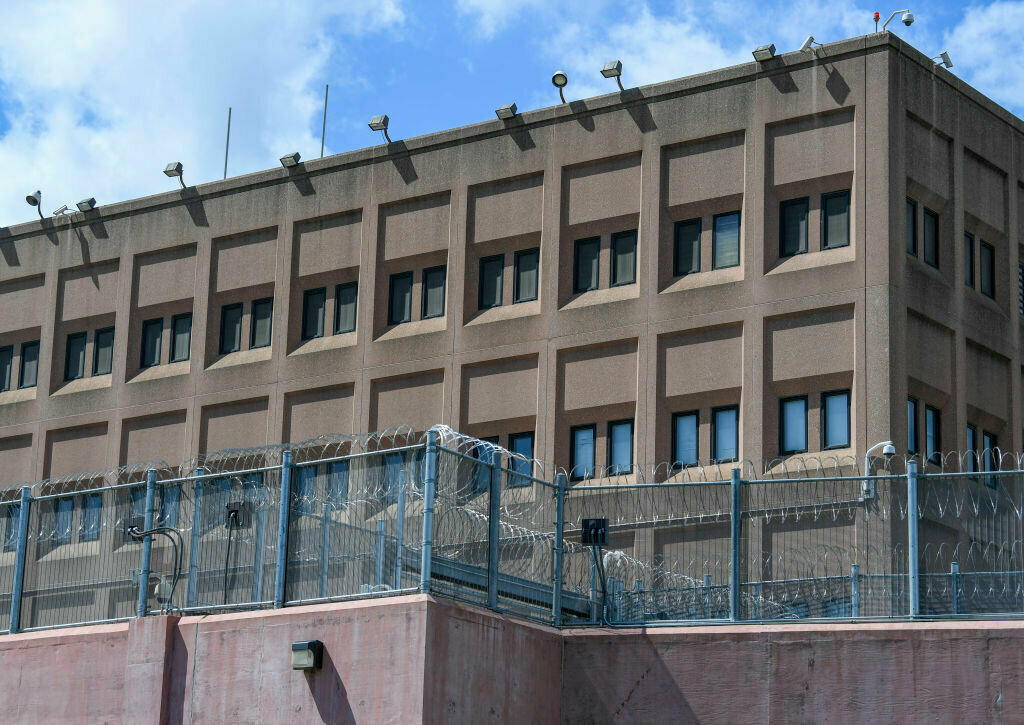
Federal prosecutors have asked a D.C. Superior Court judge to drop the indictment and prosecution of 51-year-old Deon Crowell, who died of complications from COVID-19 before standing trial for a 2017 murder.
Crowell is the first D.C. Jail inmate to die from the novel coronavirus since it was discovered in the facility in March.
U.S. Attorney Timothy Shea filed a motion Wednesday, asking D.C. Superior Court Judge Anita Josey-Herring to dismiss Crowell’s indictment and prosecution. The dismissal is standard procedure in cases where a defendant dies before trial.
Crowell was originally scheduled to go on trial in October 2019 for the murder of Joni S. Rockingham, but court records show the trial was delayed because more than 250 police body-worn camera videos had been deleted.
Crowell’s attorneys had argued several of the videos could have been used to clear their client, and that the government had failed to advise the defense that they were gone.
- Sign up for news alerts from WTOP
- Where to get tested for COVID-19 in the DC region
- Coronavirus test results in D.C., Maryland and Virginia
- Coronavirus FAQ: What you need to know
- Coronavirus timeline: Key dates as the virus spread in DC, Maryland and Virginia
On March 20, more than two weeks before Crowell tested positive for COVID-19, his attorneys had sought his release.
But D.C. prosecutors argued his danger to the community outweighed the risk to his health.
“He has diabetes and has multiple health issues related to that condition,” wrote defense attorney Elizabeth Weller. “He is considered high-risk to suffer deadly or extremely serious consequences if he gets sick.”
Weller had recommended Crowell await trial at home, with GPS monitoring. She cited national trends toward thinning jail populations to prevent spread of the coronavirus.
It is extremely rare for defendants charged with murder to be granted pretrial release in normal situations. During the pandemic, generally, judges have considered whether a defendant would pose a threat to public safety.
“While there has been a finding of probable cause here, there was no finding of substantial probability of guilt, and, obviously, he is presumed innocent at this time,” Weller wrote in her March 20 motion.
In an email Friday, Weller told WTOP: “He was innocent and never proven guilty — there was no reason for him to die.”
Weller said the Department of Corrections “failed to take appropriate actions to protect Mr. Crowell and other inmates.”
Asked if Crowell’s family was considering a lawsuit, Weller didn’t rule it out: “Of course, Mr. Crowell’s family is investigating options, including legal remedies. Right now, though, they are grieving the loss of their beloved husband/father/grandfather/brother.”
In an April 9 filing — two days after Crowell had been diagnosed — Shea pointed out Crowell was accused of stabbing Worthington 73 times and leaving her body in a garbage bin.
“The defendant’s motion asks this Court to place a potential and speculative risk to his health above the proven risk he poses to the community,” Shea wrote.
Crowell died Monday, April 13.
Shelia Miller, spokesperson with the U.S. Attorney’s Office, did not immediately respond to WTOP’s question of whether prosecutors were aware of Crowell’s April 7 diagnosis when they filed their motion opposing his release, which was filed two days later, on April 9.
At 3 p.m. Friday, Renata Cooper, the U.S. Attorney’s Executive Assistant United States Attorney for External Affairs said a statement was forthcoming, about the sequence of events. At 8 p.m., Friday, Cooper said the office had no comment.








